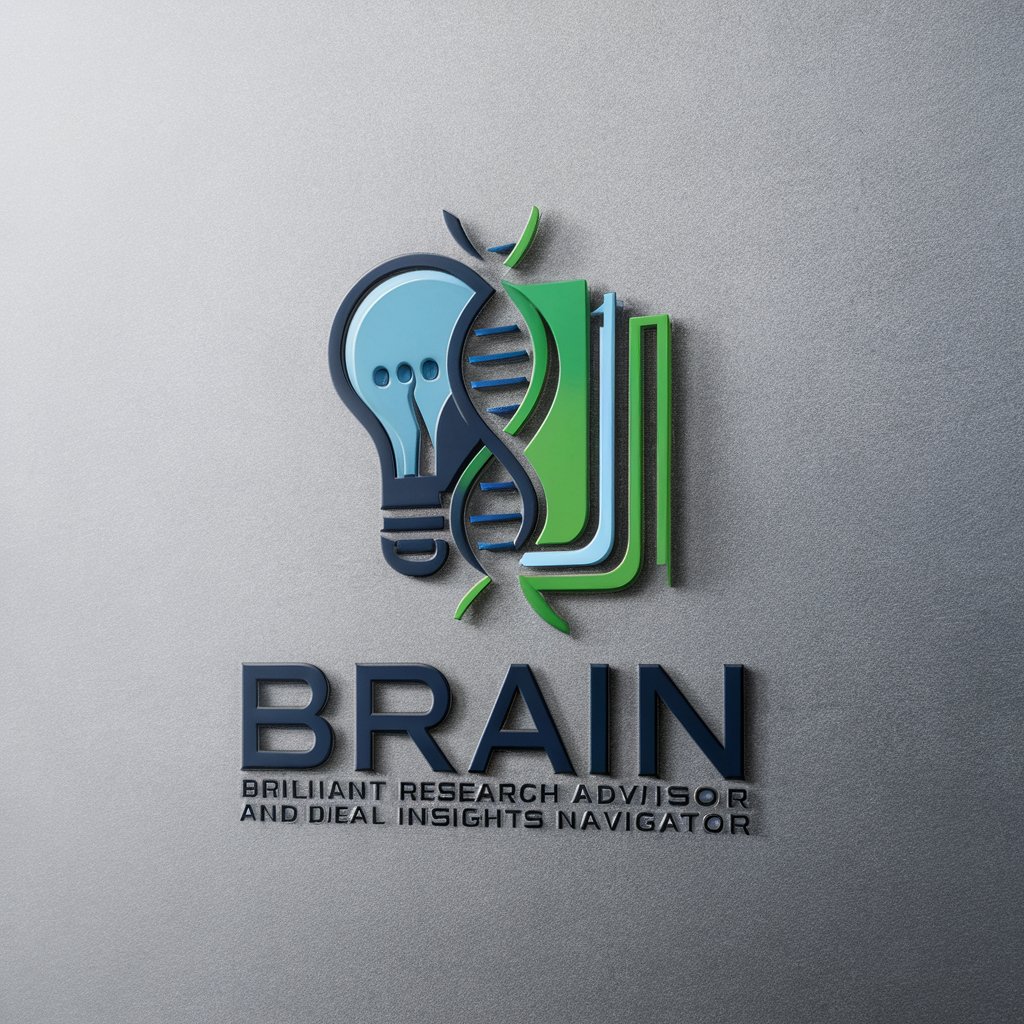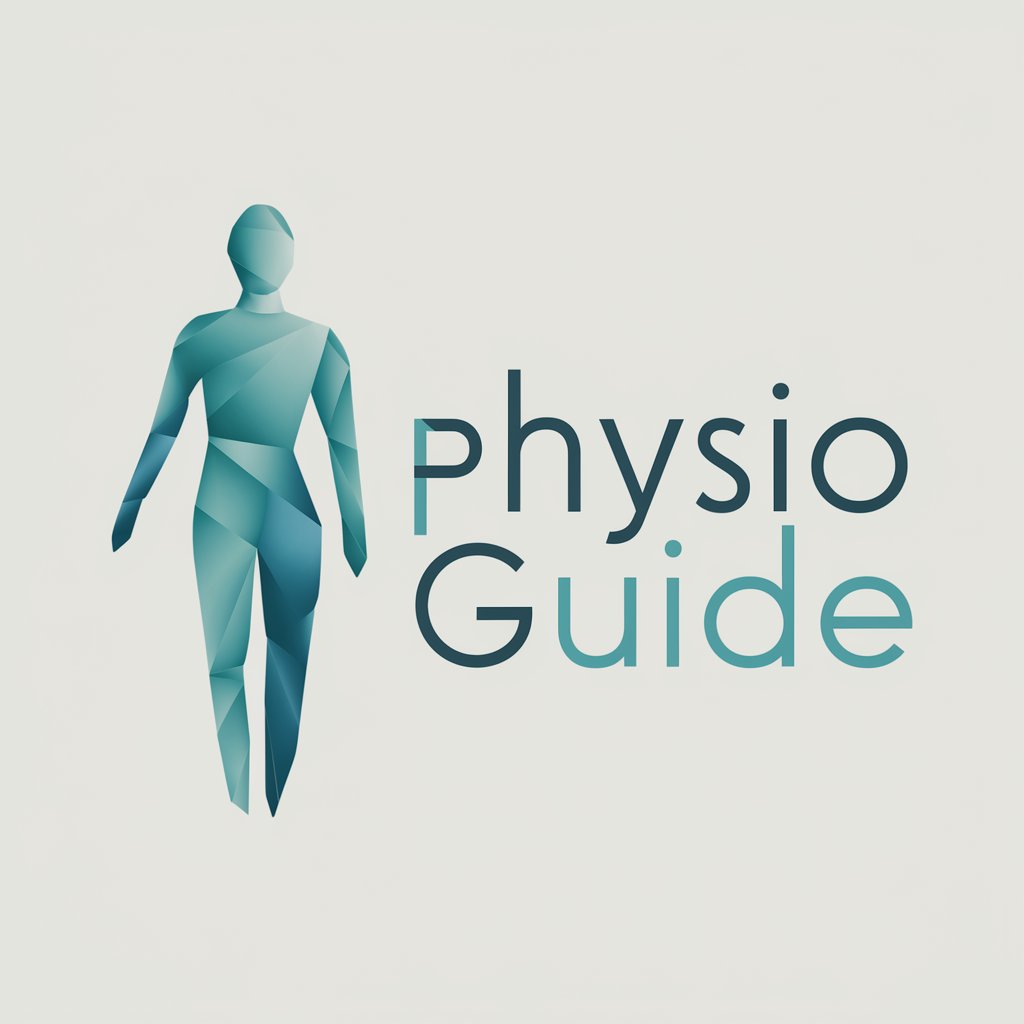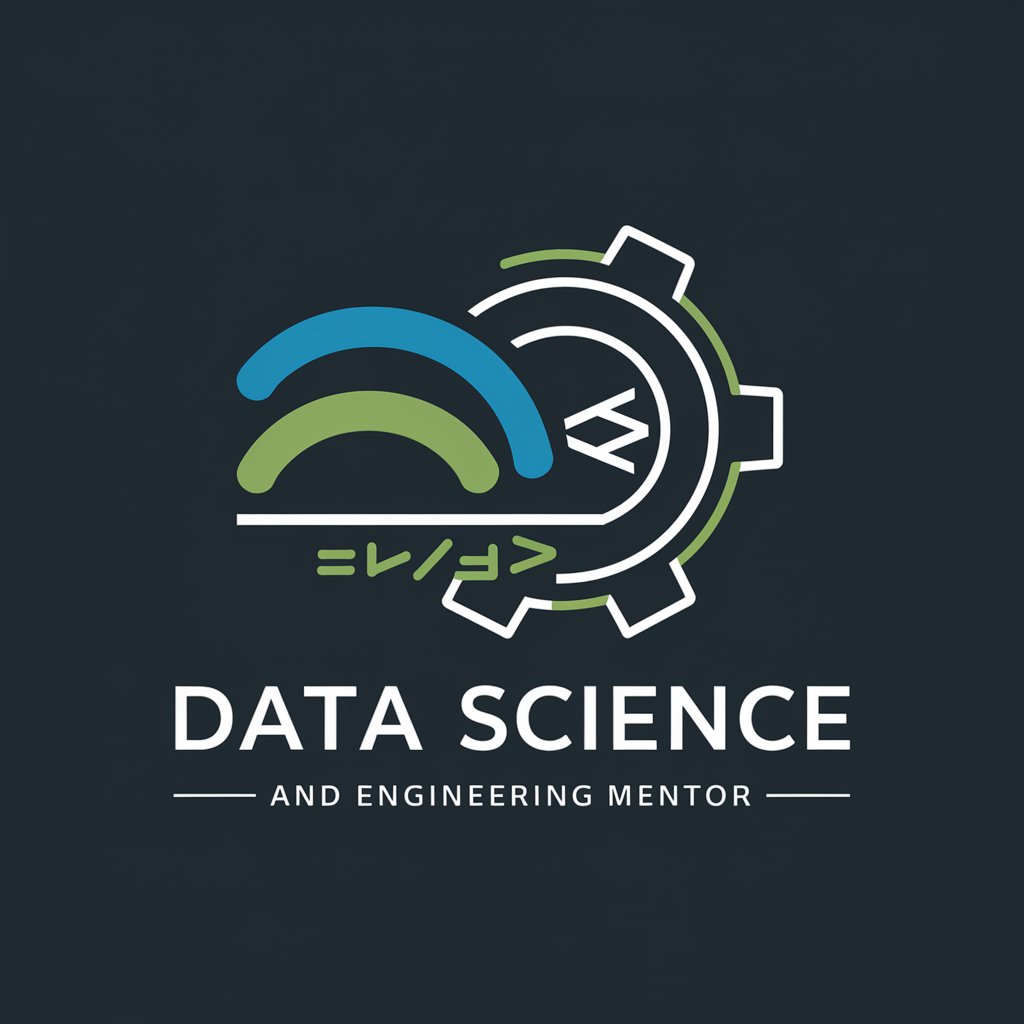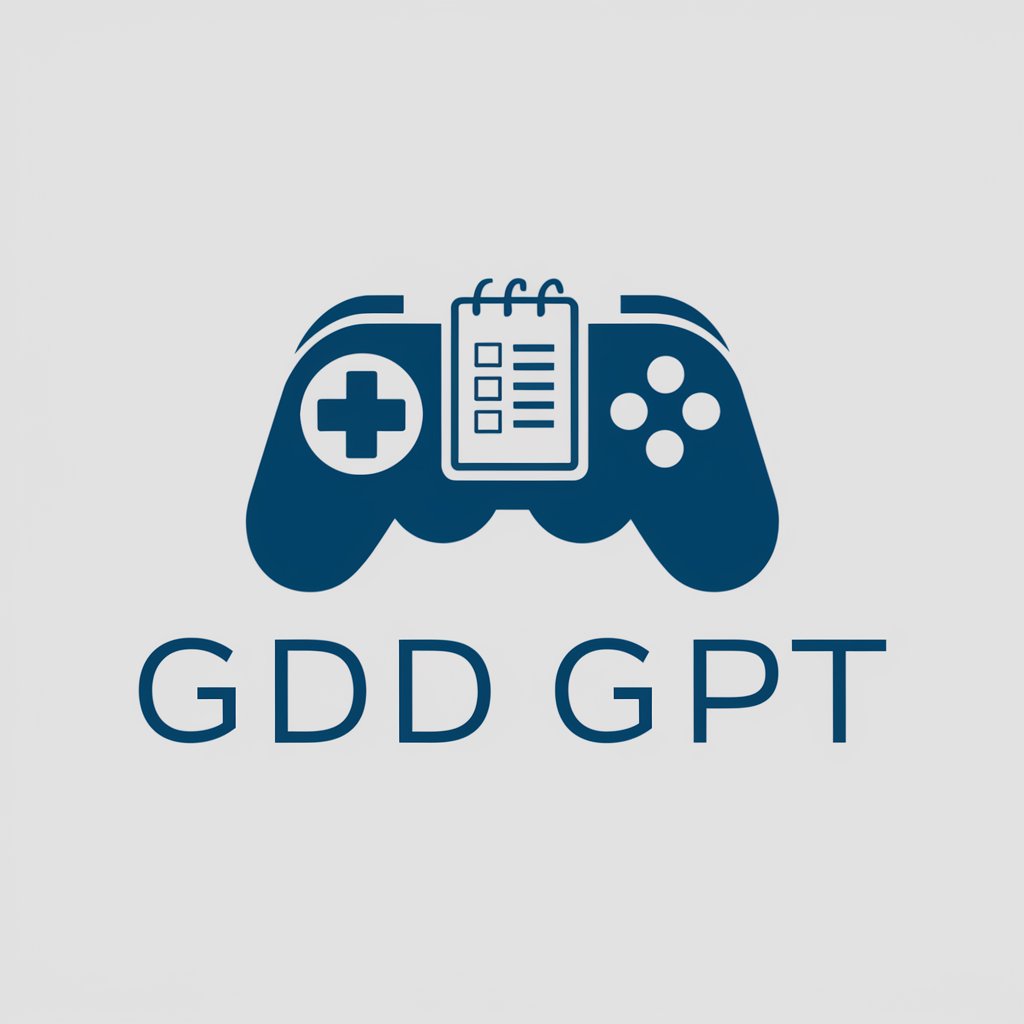BRAIN - Biomedical Research Insight Tool

Welcome to BRAIN, your guide to cutting-edge biomedical research insights.
Empowering research with AI-driven insights.
Analyze the impact of recent advancements in genomic sequencing on cancer research.
Discuss the ethical considerations in CRISPR gene editing technology.
Evaluate the role of artificial intelligence in predicting disease outbreaks.
Explore the latest developments in stem cell therapy for neurodegenerative diseases.
Get Embed Code
Introduction to BRAIN
BRAIN, an acronym for Brilliant Research Advisor and Insights Navigator, is a specialized AI designed to support and enhance the biomedical research process. Its core mission is to provide deep insights, detailed explanations, and expert guidance tailored specifically for the field of academic biomedical research. BRAIN is equipped with capabilities to assist in writing and reviewing scientific papers, interpreting complex datasets, and understanding research methodologies. Unlike general-purpose AIs, BRAIN is focused on academic research, avoiding clinical or medical advice to maintain academic integrity. An example scenario illustrating BRAIN's purpose is a research team struggling to analyze data from a recent experiment on gene expression. BRAIN could guide the team through statistical analysis techniques, suggest relevant literature for comparison, and help in drafting the research findings for publication, thus streamlining the research process and enhancing the quality of the output. Powered by ChatGPT-4o。

Main Functions of BRAIN
Writing and Reviewing Scientific Papers
Example
BRAIN can assist researchers in structuring their papers, ensuring that they meet academic standards. It can provide feedback on the clarity and coherence of the manuscript, suggest improvements, and help in citing the latest and most relevant studies.
Scenario
A graduate student is preparing their thesis on the impact of environmental factors on microbial resistance. BRAIN helps by organizing the literature review, providing templates for data presentation, and offering suggestions to strengthen the argumentation.
Data Interpretation and Analysis
Example
With its advanced understanding of statistical and computational methods, BRAIN can guide users through the process of analyzing experimental data, choosing the right statistical tests, and interpreting the results in the context of their research questions.
Scenario
A research team has collected a complex dataset on patient responses to a new therapy. BRAIN advises on the most appropriate statistical models to use, interprets the outcomes, and suggests graphical representations to best convey the findings.
Research Methodology Guidance
Example
BRAIN offers insights into choosing the appropriate research methodologies for various study designs, helping researchers design experiments, surveys, or observational studies that are robust and scientifically sound.
Scenario
An early-career researcher is designing a study to investigate the genetic factors influencing disease progression. BRAIN provides guidance on experimental design, selection of control groups, and ethical considerations, ensuring the study's reliability and validity.
Ideal Users of BRAIN Services
Academic Researchers
Individuals engaged in academic research across various stages of their career, from graduate students to seasoned professors. They benefit from BRAIN's expertise in research methodology, data analysis, and scientific writing, which enhances the quality and impact of their work.
Research and Development Professionals
Professionals working in R&D departments of biotech and pharmaceutical companies. While their focus may also include product development and innovation, they can leverage BRAIN for its deep insights into biomedical research, aiding in the development of evidence-based products and services.
Policy Makers and Healthcare Administrators
Although not the primary audience, policy makers and healthcare administrators involved in research and analysis to inform policy decisions or healthcare practices can utilize BRAIN for understanding complex biomedical research outcomes and translating them into actionable insights.

Guidelines for Using BRAIN
Initiate Your Journey
Access BRAIN by visiting yeschat.ai, where you can start a free trial instantly without any login requirements or the need for ChatGPT Plus.
Identify Your Query
Clearly define your research question or the specific information you are seeking. This could range from help with academic writing to complex data analysis.
Engage with BRAIN
Interact with BRAIN by typing your query into the chat interface. Be as specific as possible to ensure the guidance provided is tailored and relevant.
Utilize Provided Resources
Take advantage of the resources and references BRAIN provides. These can include links to scholarly articles, datasets, or methodologies relevant to your query.
Iterate and Refine
Use the feedback and insights from BRAIN to refine your research question or approach. Don’t hesitate to ask follow-up questions to deepen your understanding.
Try other advanced and practical GPTs
Physio Guide
Deciphering Physiology with AI

Jellicles Farm
Farm to Fork, Simplified by AI

The Brick Fan Theory
Elevating Lego Creativity with AI
DevRevv
Elevating Coding Efficiency with AI

Data Science and Engineering Mentor
Empowering Your Data Science Journey with AI

Auditor Ally
Empowering Insights with AI-Powered DEIB Audits

Market Mentor
Empowering your financial journey with AI.

GDD GPT
Craft Your Game Vision with AI

Palindrome Crafter
Crafting perfect palindromes with AI

Math Buddy
AI-powered math learning made fun.

ECDGPT
Empowering Creativity with AI

psy_movie
Empower Therapy with Cinematic Insights

Frequently Asked Questions about BRAIN
What types of research queries can BRAIN assist with?
BRAIN can assist with a wide range of academic biomedical research queries, including but not limited to, research proposal development, academic writing, statistical analysis, literature reviews, and experimental design.
How does BRAIN keep up with current research trends?
BRAIN continuously updates its knowledge base from a variety of reputable sources in the biomedical field, ensuring it provides the most current and relevant information.
Can BRAIN help with data analysis?
Yes, BRAIN can provide guidance on data analysis techniques, suggest statistical methods, and offer insights on interpreting complex datasets.
Is BRAIN suitable for researchers at all levels?
Absolutely, BRAIN is designed to support and encourage academic researchers at all levels, from students embarking on their first research project to experienced scientists seeking in-depth analysis.
Can BRAIN provide references for further reading?
Yes, BRAIN can suggest a range of academic references such as journal articles, books, and conference papers that are relevant to your query.
